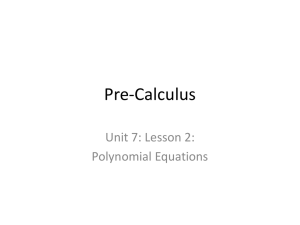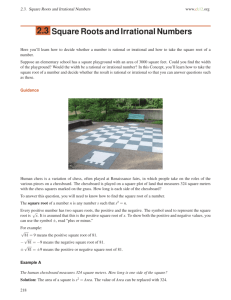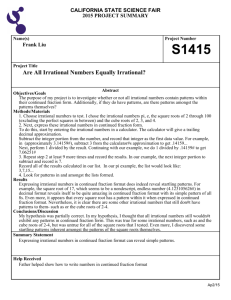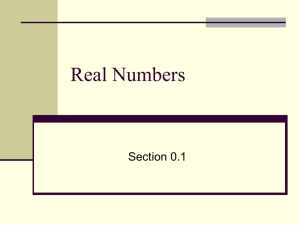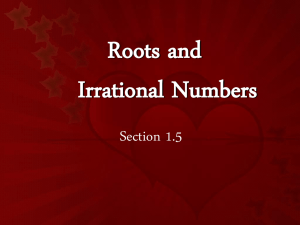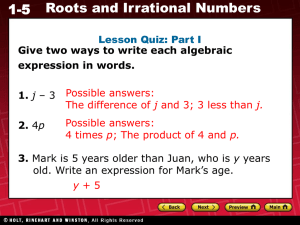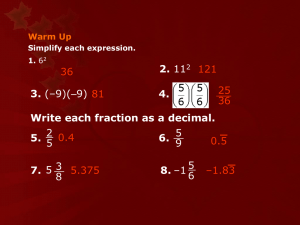Exploring Square Roots and Irrational Numbers
advertisement
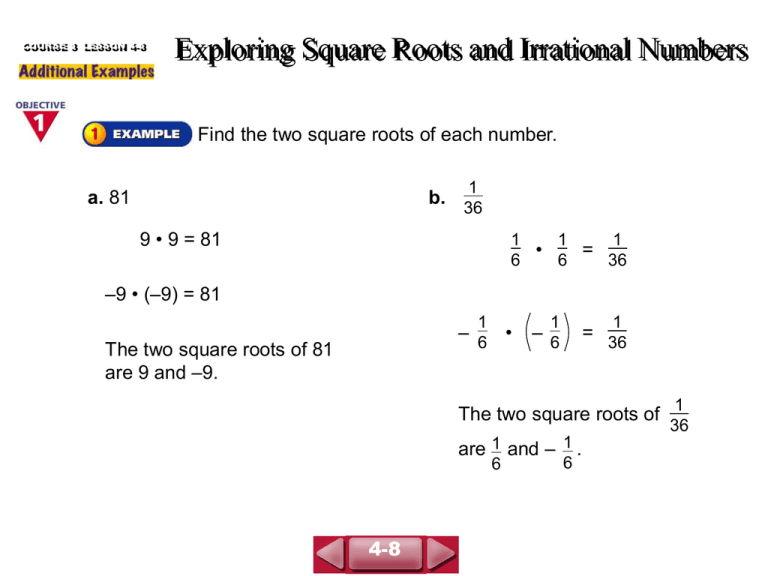
COURSE 3 LESSON 4-8 Exploring Square Roots and Irrational Numbers Find the two square roots of each number. 1 a. 81 b. 36 9 • 9 = 81 1 1 1 • = 6 6 36 –9 • (–9) = 81 1 – 6 • The two square roots of 81 are 9 and –9. 1 1 –6 = 36 The two square roots of are 1 and – 1 . 6 4-8 6 1 36 COURSE 3 LESSON 4-8 Exploring Square Roots and Irrational Numbers Estimate the value of – 70 to the nearest integer. Since 70 is closer to 64 than it is to 81, – 4-8 70 –8. COURSE 3 LESSON 4-8 Exploring Square Roots and Irrational Numbers The math class drops a small ball from the top of a stairwell. They measure the distance to the basement as 48 feet. Use the formula d = 16t2 to find how long it takes the ball to fall. d = 16t2 Use the formula. 48 = 16t2 Substitute 48 for d. 48 2 = t 16 Divide each side by 16. 3 = t2 Simplify. 4-8 COURSE 3 LESSON 4-8 Exploring Square Roots and Irrational Numbers (continued) 3=t Find the positive square root. 3 1.7 1.7320508 Use a calculator. t Round to the nearest tenth. It takes about 1.7 seconds for the ball to fall 48 ft. 4-8 COURSE 3 LESSON 4-8 Exploring Square Roots and Irrational Numbers Identify each number as rational or irrational. Explain. a. –9.3333 7 Rational; the decimal repeats. 43 b. 4 9 Rational; the number can be written as the ratio 9 . c. Irrational; 90 is not a perfect square. 90 d. 6.36366366636666. . . Irrational; the decimal does not terminate or repeat. 4-8 COURSE 3 LESSON 4-8 Exploring Square Roots and Irrational Numbers 1. Find the two square roots of 400. 20 and –20 2. Estimate 34 to the nearest integer. 6 3. Using d = 16t 2, find how long it takes a skydiver to fall 676 ft from an airplane. 6.5 s 64 rational or irrational? Explain. 5 Rational; it can be written as 8 . 5 4. Is 4-8


